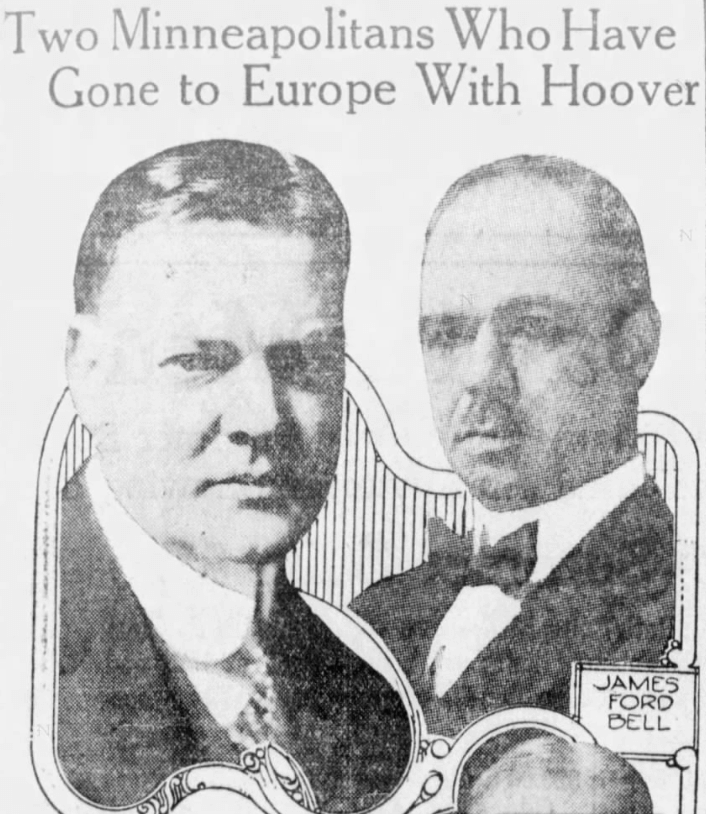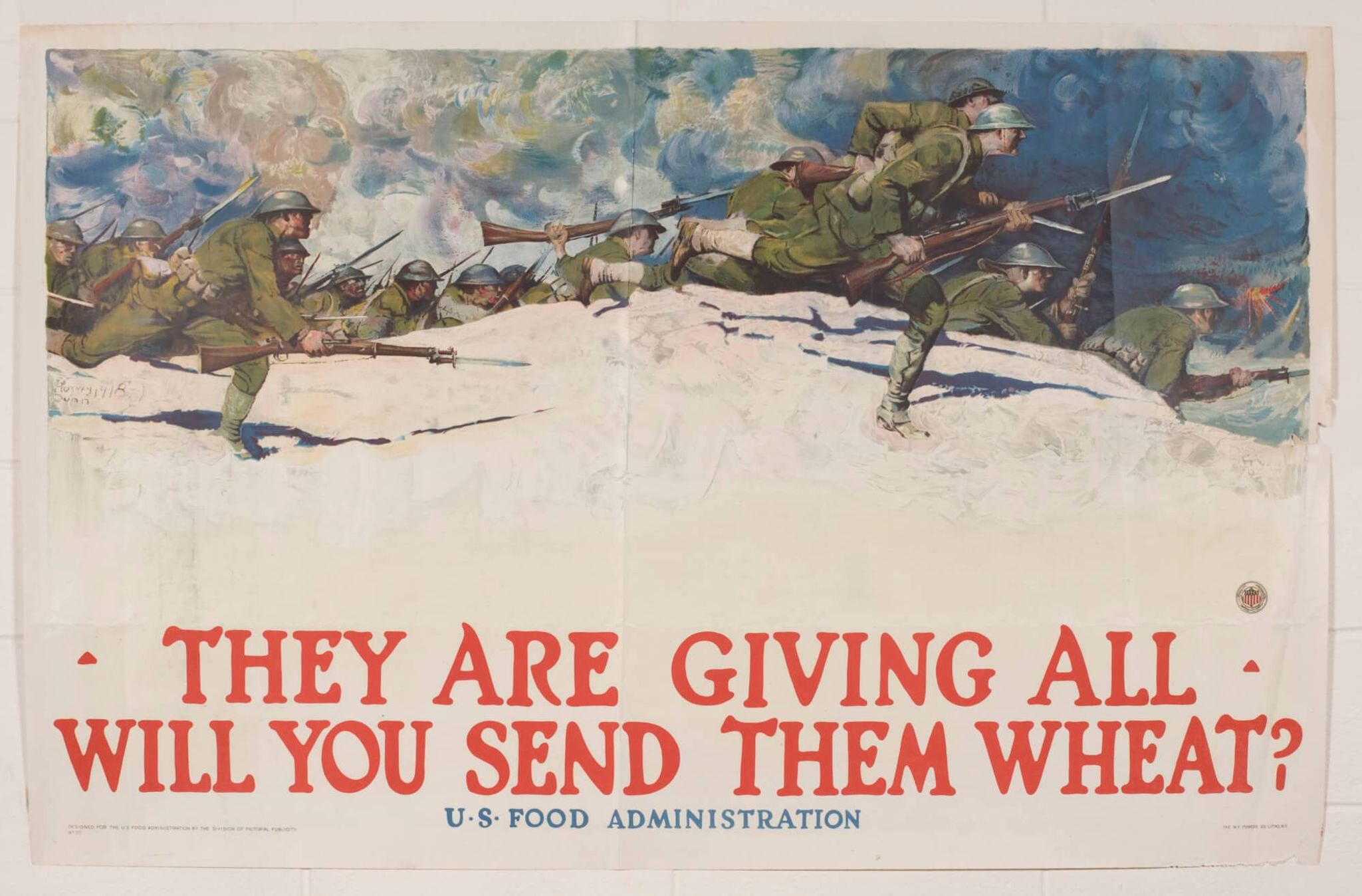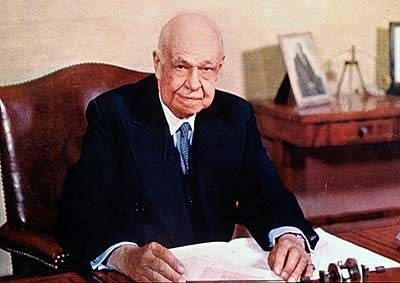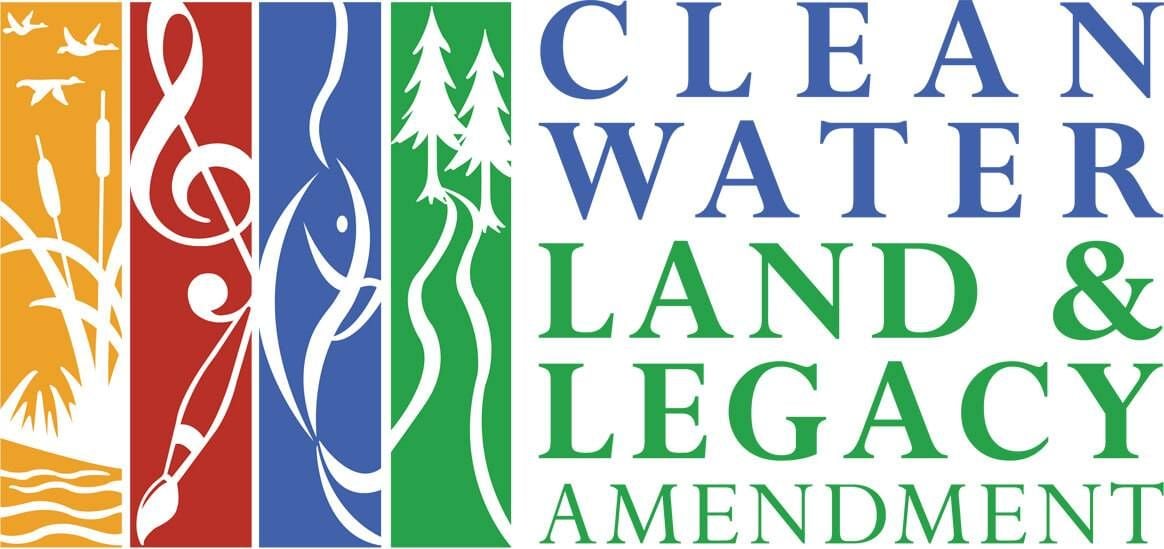Wheat Will Win the War
You may know him from the recently re-opened Bell Museum, but James Ford Bell's illustrious career started as a chemistry major at the University of Minnesota. His background in the sciences would serve him well, as he went on to establish a flour testing lab at Washburn Crosby, one of the first in a milling company in the world.

That kind of thinking is what got the attention of the Wilson administration and Herbert Hoover. He needed someone to head up the Milling Division of the US Food Administration. Their main task, to reduce the amount of flour and bread being consumed by Americans so it could be redirected to allies overseas. Through aggressive marketing and regulation of the milling industry, Bell was able to stretch the wheat supply and from April 1917 and June 1919, send 6.2 million metric tons of wheat to Europe.

After the war, James Ford Bell continued to rise through the ranks of Washburn Crosby, becoming president in 1925. And it was Bell, in 1928, that consolidated four other milling companies to create General Mills.


This story and Minnesota Experience are made possible by the Arts and Cultural Heritage Fund and the citizens of Minnesota.
